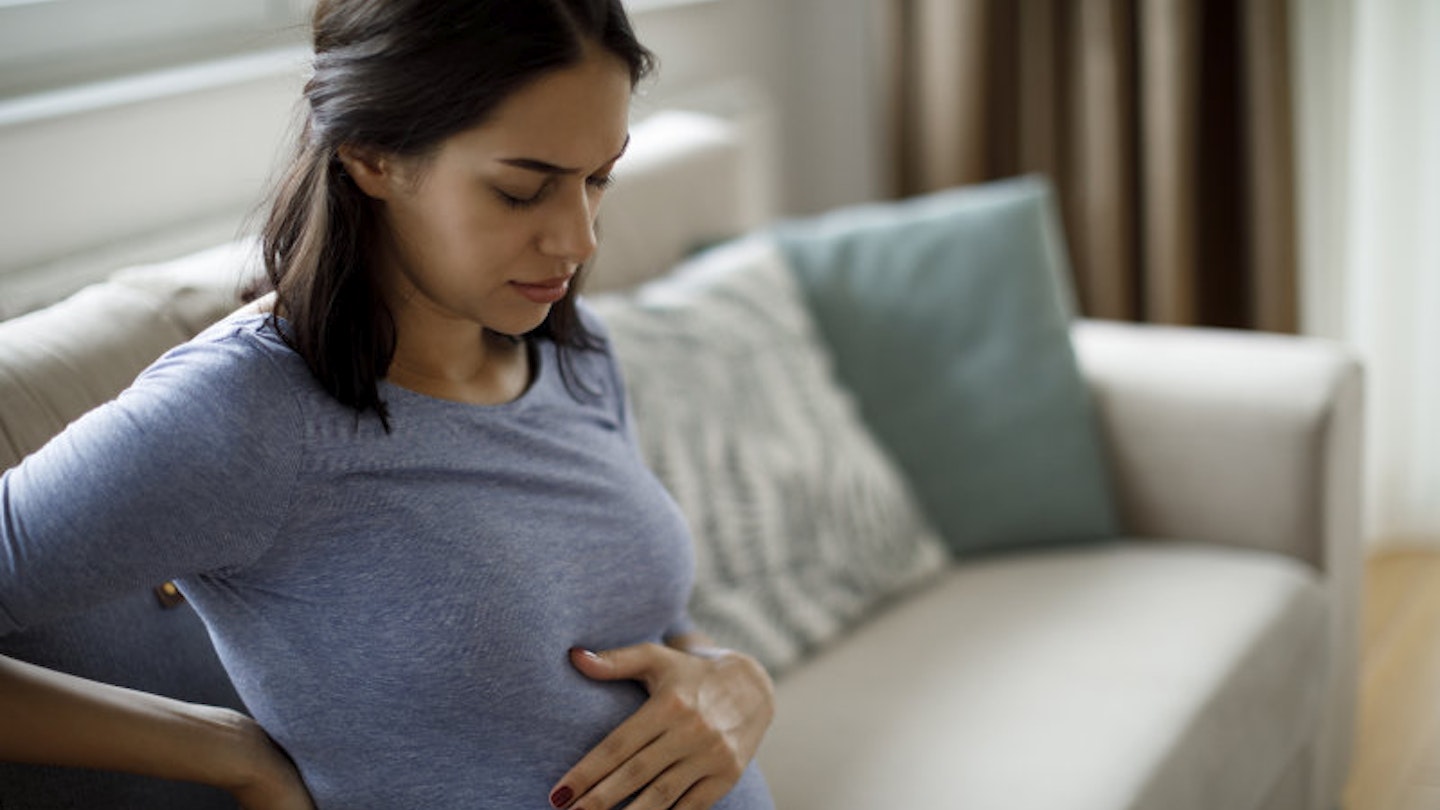Feeling a bit like a hot-air balloon? Pregnancy bloating is a very common symptom of pregnancyand it can cause us mums to feel rather uncomfortable and sometimes, it can be quite painful. Unfortunately, it’s just one of those symptoms some of us have to deal with while pregnant, but there are a few things you can do to help ease the discomfort and feel a little less full-of-it.
When does bloating in pregnancy start?
Pregnancy bloating can occur at any time during pregnancy with some mums-to-be feeling it as early as the four-week mark. Other pregnant women experience the bloating sensation a little later in their pregnancy at around 11 weeks.
Once you experience pregnancy bloating, it’s likely to be a pregnancy symptom right the way through your pregnancy until you give birth.
What causes pregnancy bloating?
That bloated and gassy feeling can occur due to the increased levels of the pregnancy hormone progesterone in your body. As you produce more progesterone to support you and your baby through your pregnancy, it causes the smooth muscle tissue in your body to relax, which can slow down digestion and helps give the nutrients from the food you eat more time to enter your bloodstream and reach your baby.
Unfortunately, this slower digestion allows more gas to build up in your body, increasing gas and bloating, meaning you’ll probably find yourself burping and farting a lot more than normal (yet another glamorous pregnancy symptom to contend with), and you may also experience constipation. Furthermore, you may find that if you suffer from IBS during pregnancy, your bloating symptoms may change.
How long does pregnancy bloating last?
Although some mums experience that bloated feeling throughout their pregnancy, the symptoms of bloating and gas during pregnancy can ease as you enter your second trimester.
However as your uterus expands and presses on your stomach and intestines, your pregnancy bloating might even get worse.
While bloating can be very uncomfortable for mums, it doesn’t cause any discomfort or pain to the baby and increased bloating and gas shouldn’t stop you from having a healthy pregnancy. If you are concerned or if the bloating is causing you real discomfort, you should seek medical advice from your GP.
Tips to reduce bloating in pregnancy
If it’s causing you some real discomfort, there are a few things you can do to help ease the bloating...
• Drink plenty of water - try and drink at least 8 glasses of water per day to help keep things moving through your digestive system to help avoid constipation which can make bloating feel a lot worse.
• Eat little and often - not only will this better nourish you and your baby but opting for six small meals instead of three large ones will make it easier for your stomach to digest your food.
• Up your fibre intake - having plenty of fibre in your diet can ease constipation and bloating, so swap your pasta and bread for whole wheat and try to up the number of fruit and vegetables you eat in a day.
• Eat slower - the faster you eat, the more air you take it which can make you feel very bloated. Try slowing things down when you eat and try not to rush meals.
• Avoid high-fat foods - these can often make you feel even more bloated and gassy.
• Exercise regularly - regular and gentle exercise will help speed up your digestive process - even if it’s just a brisk walk at lunchtime. Find out more on how to safely exercise in pregnancy.
• Eat fewer foods that are likely to make you gassy - foods such as cabbage, baked beans, brussels sprouts and broccoli are all likely to increase the amount of gas you produce so try and go a little easier on your helpings of these foods.
